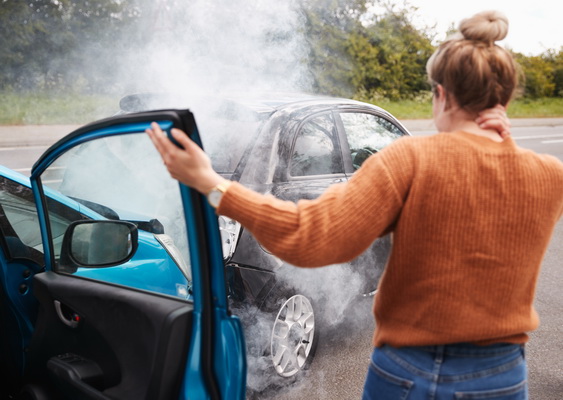Personal Injury Claims

Personal Injury Claims or Every tort claim, regardless of its basis, whether intentional, negligence, or strict liability, has two basic issues—liability and damages. Was the defendant liable for the damages you sustained, and, if so, what is the nature and extent of your damages? If you can prove liability and damages, our system of justice will award you compensation for your loss.
What is a typical personal injury case?
Automobile accidents, the area in which most personal injury actions arise, provide a good example of how the tort system works. You have a negligence claim in a “fault” state if you are injured by a driver who failed to exercise reasonable care because drivers have a duty to exercise reasonable care anytime they are on the road. When they breach that duty and your injury results, personal injury law says you can recoup your losses. (Note, though, that the system may be very different in states that have passed no-fault laws.)
Negligence reaches far beyond claims stemming from car accidents. It is the basis for liability in most personal injury lawsuits, including medical malpractice.
Is there any other basis for personal injury besides negligence?
Yes.
- Strict liability is an important and growing area of tort law. It holds designers and manufacturers strictly liable for injuries from defective products. In these cases, the injured person does not have to establish the negligence of the manufacturer. Rather, you need to show that the product was designed or manufactured in a manner that made it unreasonably dangerous when used as intended.
- Intentional wrongs can also be the basis of personal injury claims, though they are rarer. If someone hits you, for example, even as a practical joke, you may be able to win a suit for battery. Or if a store detective wrongly detains you for shoplifting, you may be able to win a suit for false imprisonment. While perpetrators of some of the intentional torts—assault and battery, for example—can be held criminally liable for their actions, a tort case is a civil proceeding in court brought by an individual or entity and remains totally separate from any criminal charges brought by the government.
What happens if I file a lawsuit?
You become the plaintiff in the case and the person who injured you becomes the defendant. Lawyers for each side (and for the insurer) typically begin gathering facts through the exchange of documents, written questions (interrogatories), or depositions (questions that are asked in person and answered under oath). This process is called discovery. After discovery, many cases get settled before trial. Only a small percentage of personal injury actions ever go to trial.
What will I get if I win my case?
If you win, a judge or jury awards you money, known as damages, for your injuries. That amount can include compensation for such expenses as medical bills and lost wages, as well as compensation for future wage losses. It also can compensate you for physical pain and suffering. In addition, you may receive damages for any physical disfigurement or disability that resulted from your injury.
Will the person who caused my injury get punished?
No. Punishment comes from criminal cases, not civil cases. Defendants in civil actions for personal injury do not receive jail terms or stiff fines as punishment. Those are criminal sentences and personal injury cases are civil disputes. (But juries and courts can award what the law calls punitive damages when the defendant’s intentional acts have injured you. These awards are rather rare.)
Does a personal injury lawsuit have to be filed within a certain amount of time?
Every state has certain time limits, called “statutes of limitations,” that govern the period during which you must file a personal injury lawsuit. In some states, for example, you may have as little as one year to file a lawsuit from an automobile accident. If you miss the statutory deadline for filing a case, your case is thrown out of court.
Personal Injury Claims – contact sodhi law group today.
The Sodhi Law Group is a highly successful law firm located in Modesto, California. We specialize in Criminal Defense, Civil Litigation, Personal Injury, Contracts and Transactions, and many other legal services. Jak Sodhi, Ameet Birring, and their team of professionals offer more than 20-plus years of legal experience and over 90% successful court cases since 1999*.
This blog does not create an attorney-client relationship. This blog is legal information and should not be seen as legal advice. You should consult with an attorney before you rely on this information.
Have questions? Contact Sodhi Law Group at http://sodhilawgroup.com/ or (209) 263-4820. Also, follow us on FaceBook today. Or fill out the form below.

